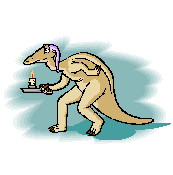Fear of Darkness – Achluophobia
I have.
Well, actually I was afraid of what might be in the dark.
At about the age of 12, I woke up because there was a noise outside the bedroom window and when I looked, half the window was blocked out with this big, dark shape. I was terrified and with a dry throat and croaky voice, I quavered, “whoooooo’s ththethere?” To my further shock, my sister laughed and said “it’s me”. She was half in and out the window and was talking to mum who was outside! I think I nearly died of fright that night, and on occasion, the dark and I aren’t friends. Most of the time, I’m okay, but if I had been an anxious little girl, it could have affected me badly for years to come.
How does fear of the dark develop?
Achluophobia also known as fear of the dark, can begin at a much younger age and children with night terrors or nightmares (see my last post) could also suffer from achluophobia. How does a child have a fear of the darkness or what might be in the dark? It’s pretty easy to understand if you ever had brothers or sisters play midnight pranks, if you ever sat around a campfire talking about ghosts, played with ouiji boards, watched Twilight’s demons and vampires, or got scared reading books and watching Harry Potter movies.
So how about adults? What causes their fear of the dark or what’s in it? For some adults the problems started at a young age and continued to adulthood but for others, there has often been a trauma that triggered this fear. Remember that a phobia is an irrational fear, so it goes beyond having an occasional bad night on a dark night.
Look at this too – Fear of Darkness
If someone was attacked on a dark street, or burgled while asleep in their home, or frightened off a burglar in the act, then this trauma may trigger the phobia. Some people may begin to get scared as twilight approaches, and become more panicked the darker it becomes.
The symptoms of achluophobia are similar for most phobias and include physical manifestations of fear, emotional overload, and loss of clear thinking.
Physical Symptoms May Include:
- pounding heart
- shallow breathing
- gasping for air
- hyperventilation
- sweaty palms
- sweaty face
- nausea
- light-headedness
- jelly legs
- numbness
Emotions May Include:
- Discomfort
- Embarassment
- Feeling unable to breathe
- Anxiety
- Panic
Cognitive Symptoms May Include:
- Verbal put-downs on yourself
- Loss of clarity of thought
So what can you do to overcome Fear of the Dark?
Find out more on Fear of the Dark
Physical Treatment:
- Learn relaxation and meditation so that you learn how to manage your mind while also relaxing your body. This may have an effect on overall tension and anxiety in the body, so that anxiety decreases and sleep improves.
- Massage can also be useful to help release tension from the body and the room may be darkened as well, so that the person has a very relaxing experience and it is associated with the dark.
Emotional Treatment:
- Learn Mindfulness Meditation and be able to accept the moment, and focus on your immediate surrounds so that you again train your mind to go where you want it to go, and turn off the energy that is leaking away from you through fear and panic.
- Practise meditating on your feelings, simply observing them lovingly so that you stop judging your emotional state and it’s possible that the distressing emotions will simply fade away.
Cognitive Therapy:
- Systematic desensitization may be useful, with gradual exposure to the dark, starting with a minute, then gradually increasing the time.
- If trauma has been the cause of fear of the dark, then do seek help as Post-Traumatic Stress Disorder could be associated with this fear.
 Hypnosis:
Hypnosis:
Hypnotic therapy may be very useful as it goes straight to the subconscious mind to work on the underlying fear of the dark and also re-writes the scripts. Some psychologists may be able to offer a combination of therapies as well.
Another idea: put your bedside light on a timer or on a dimmer switch so that you gradually dial the light down, or so that the light goes out after you are asleep. I recall reading a report years ago that said sleeping with the light on all night is not good for your eyes and could be the cause of needing glasses, for some eye problems. The reason related to the rods or cones (I can never remember which) getting stuck because the light never changed or varied, and our eyes need to respond flexibly to varying light.
The main thing to remember is that fear of darkness, achluophobia, can be helped and the sooner the better.



